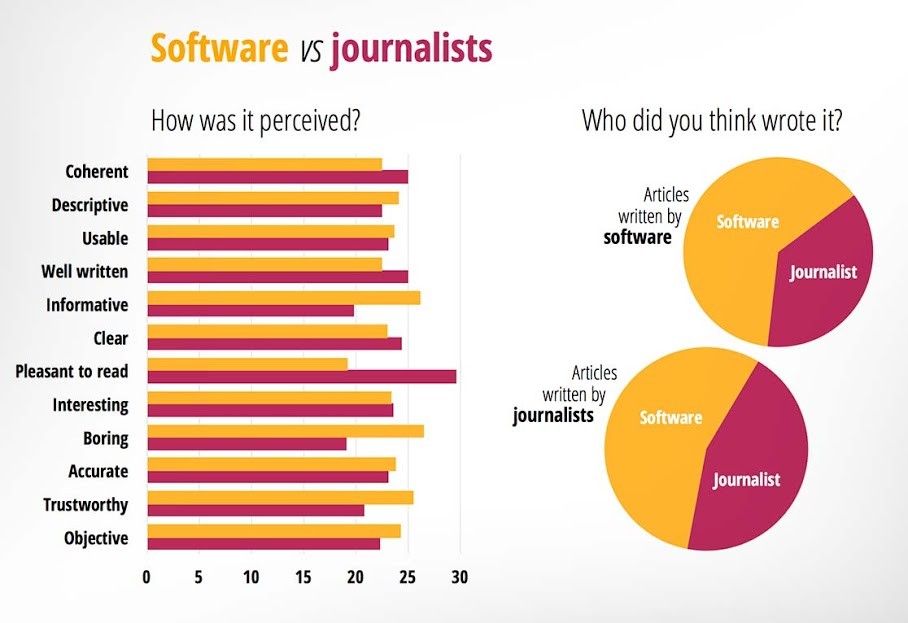These are some of the data about the acceptance of article written by robot journalists. The gist of the paper is that Robot Journalists provide more trustworthy, reliable and provoked the following reaction on Google Plus. Ron Miller, a writer on IT trends noted “Am I about to be disrupted by robots? Possibly, but while I think robots will be able to produce commodity news just fine, I think where we humans hold the advantage is in how we write and analyze the news, at least for now. I bring attitude and style (or at least I like to think so) and I don’t think a machine can understand subtlety. In other words, I don’t feel threatened just yet, but perhaps I should.”
Thomas Baekdal then noted that Ron better be careful because the above paper had shown the automatic software-based reporting is really very, very good. The study found that when it came to how the story was perceived, journalists and software algorithms were nearly identical. The only slight difference being that journalistic-written articles appeared slightly better written, although less useful, trustworthy, and informative. But the automated methods are admired for potential lower cost, timeliness, and never failing to produce on time.
The Broader Problem
Another Google+ reader noted that this was the crux of a broader problem. 50 years ago at the 1964 Worlds Fair in New York, fair-goers were promised that automation would reduce the work week to less than 20 hours. Well the promise is becoming true. Only there is alight problem – wage levels and job openings are falling too.
In effect, this is the fundamental problem confronting all the major world economies. Software and automations can do more than just good enough work value [and at a much lower cost, at a tireless rate and with much reduced downtime compared to their human counterparts] thus displacing more workers from jobs not just in manufacturing but also service and creative jobs as well.
And if anything has been proven over the past 10 years, corporate executives will pick automation and machines over human labor regardless of the damage it does to individuals, customers [think of calling for support services at a bank or insurance company], and the community [think how displaced jobs are depleting the 70% of the economy powered by individual consumption].
Conclusion
Now this would all be less of a problem if wealth and income were shared more equitably. But one does not need to hear Pope Francis words that Wealth and Income Inequality is a pervasive world problem to realize how true his remarks are. See here for a telling description on the degree of Wealth Inequality in the USA.
Hence with jobs becoming more scarce and the distribution of income for existing jobs becoming skewed relentlessly downward except for a tiny fraction of executive suite jobs – you have the makings for the biggest confrontational “bubble” of the 21st century as good and well trained people can’t find jobs or only ones that pay at the margin.

